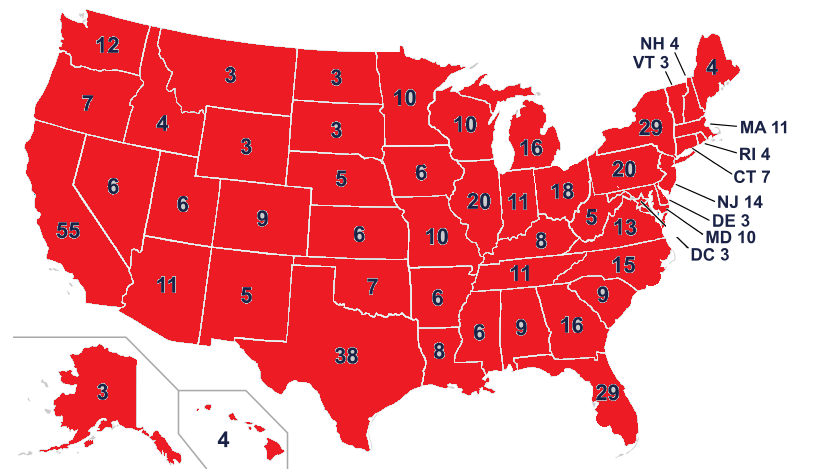Thank you, that's a fantastic post! I'm now actually more sympathetic to the people here who weren't able to take the time (or patience) to respond in such a well thought out manner. Sincere apologies to those here who were frustrated by the piece, I'm sure if something similar were posted here (or anywhere else, for that matter) regarding Australian politics I would not have been able to keep my composure either.
Is there anywhere in particular you learned about your insight, or is it just a fascination? If there were a dummies guide for US politics, I'd sure love to read it.
Edit: After reading this post I'm not necessarily changing my opinion on annoying posts outright dismissing supporters of one Democratic runner over another ("yas queen", "bernie bros", release the transcripts etc.), I'm definitely more sympathetic to people who lean on either side. An honest thank you!
PS. If you feel like elaborating on anything you wrote, absolutely go right ahead. But only if you enjoy writing and don't find it too much of a chore! Don't ask me to find anything specific though, pretty sure I just want to know more about everything

I'm glad you liked it! I can certainly understand why a lot of outside observers like Sanders so much (honestly, even though didn't vote for him in my state's primary, I like him myself) and I also get why it seems so strange when people say Bernie is being unrealistic when he proposes something that exists in their country. The thing is it can often be unclear what someone means when they question whether a proposal is realistic.
It's hard for me to say exactly where my knowledge of US politics comes from because there's many sources. Some just comes naturally from voting in and following elections, some from classes that I took (oddly enough, I gained a lot of insight into US politics from a comparative politics course I took in college, in that having a better understanding of foreign politics made me think of aspects of the US system I hadn't considered much), and some comes from reading about politics and history a lot. I'm not sure if I can think of a good primer on US politics off the top of my head, but if I remember one I'll try to let you know.
US politics can be tough to follow partly because it is so convoluted. Just to scratch the surface here, our method of indirectly electing the president is bizarre. In reality what we call "the presidential election" is really 51 separate elections to elect a body, the Electoral College, whose purpose is to elect the president, one for each state plus Washington D.C. Each state conducts the election according to its own rules (when you can vote, the method by which you vote, requirements to be a voter, etc.). Also, states with greater populations are allocated more votes in the Electoral College,
but not in direct proportion to population (essentially, states with smaller populations are somewhat overweighted). The provision for electing the president if no one receives a majority in the Electoral College (which, thankfully, hasn't happened since 1824) is even stranger (a second vote is taken in Congress in which each state, regardless of population, gets one vote). If your eyes are glazing over at this point, I don't blame you. Even most Americans are, at best, dimly aware of the details of this system. It made sense to the people who designed it back in the 1780s, but try to describe it now and you really have to wonder why it hasn't been changed.
And, don't worry, I enjoy writing about this stuff. My concern is often that no one will read what I write because I can be a bit long winded at times (you may have noticed).
I'd also be curious on the impact of having compulsory voting in the US. I can only assume there are some less significant (such as council) elections that may be mandatory, but a nationwide one, as well as conducting them on weekends and allowing for absentee votes I can only see as being a good thing.
Is there ever much debate about voter turnout and compulsory voting? Does it normally happen around the time of elections (specifically when it would favour one candidate over the other, I guess) or has there been actual, productive discussion outside of those times?
I'm not aware of any places in the US where voting is mandatory, though apparently Georgia had compulsory voting at one time in the 19th century. It gets talked about occasionally (and Obama has spoken positively of the idea) but it seems unlikely to be implemented any time soon.
Voter turnout can be a politically charged issue here, in that Republicans generally benefit from lower turnout. Basically, Republican voters tend turn out more reliably for a variety of reasons. This leads to a situation where Democrats generally advocate policies that make voting easier (e.g. early and absentee voting) while Republicans generally advocate policies that make voting harder (e.g. strict voter ID laws). How easy or hard it can be to vote in a given state often depends on the party in power.




